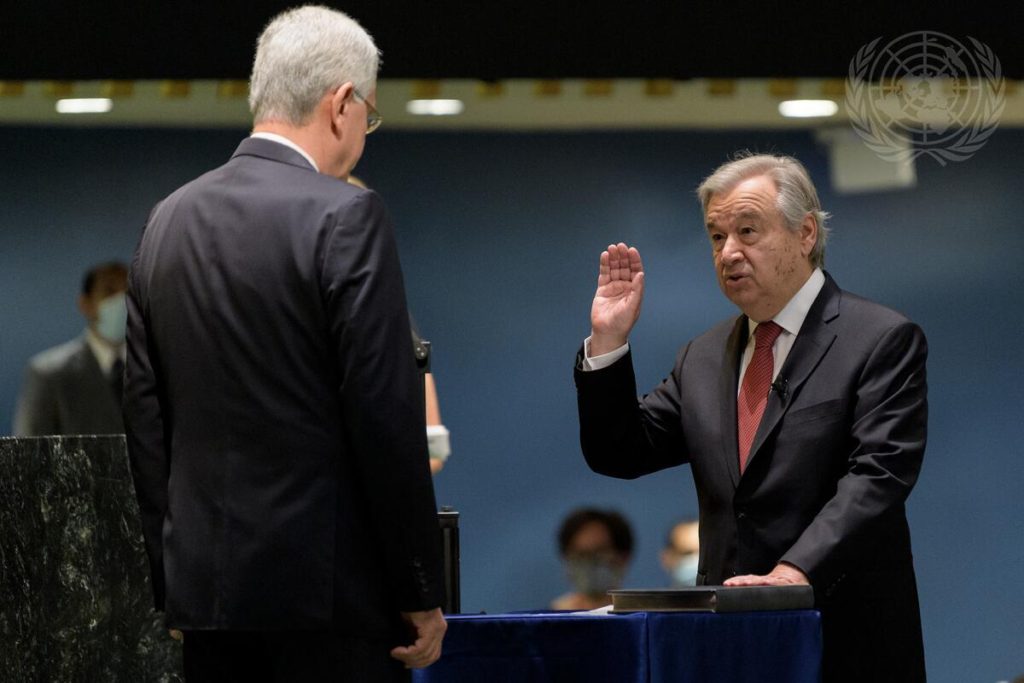New York, June 18 – United Nations Secretary-General Antonio Guterres, who was re-appointed to a second five-year term, pledged to use everything in his power to push for breakthroughs, starting with ending the pandemic and global recovery afterwards as the top priority.
Guterres took the oath of office immediately after the 193-nation UN General Assembly gave him the second term, which begins in January 2022. The assembly did so upon the recommendation by the UN Security Council, the highest political body in the UN system.
“I am humbled and energized by today’s decision of the General Assembly,“ he said. “We are at a crossroads, with consequential choices before us. It can go either way: breakdown or breakthrough. Breakdown and perpetual crisis — or breakthrough leading to a greener, safer and better future for all.”
“I will do everything in my power to push for breakthroughs,” he said. “There are reasons to be hopeful.”

Guterres said his vision for the second mandate calls for a “ten inter-related imperatives for action,” starting with “mounting a massive and enduring response to the COVID-19 pandemic and its consequences.” He said the virus is spreading faster than vaccines while distribution of the latter has been vastly unequal, with rich countries hoarding the vaccines at the expenses of poor countries.
Other actions include the search for peace and security, making peace with nature, implementing climate action and achieving the set of Sustainable Development Goals. The visions calls for making human rights central, improving gender equality, meeting the challenge of digital transformation, advancing multilateralism and UN reform.
Guterres said the final imperative is “underpinning all our efforts. It is a focus on people — bettering the lives of individuals, families and communities. Reaffirming the dignity and worth of the human person.”
He said the driving theme of his vision is prevention in all its aspects — from conflict, climate change, pandemics to poverty and inequality.
“Indeed, our success in finding solutions to interlinked problems depends on our ability to anticipate, prevent and prepare for major risks to come,” he said. “That means more innovation, more inclusion and more foresight. It means more investment in the global public goods that sustain us all. All of this requires a reinvigorated multilateralism for the new era, based on principles of equity and solidarity.”
United Nations correspondent journalists – United Nations correspondent journalists – United Nations correspondent journalists
United Nations journalism articles – United Nations journalism articles – United Nations journalism articles